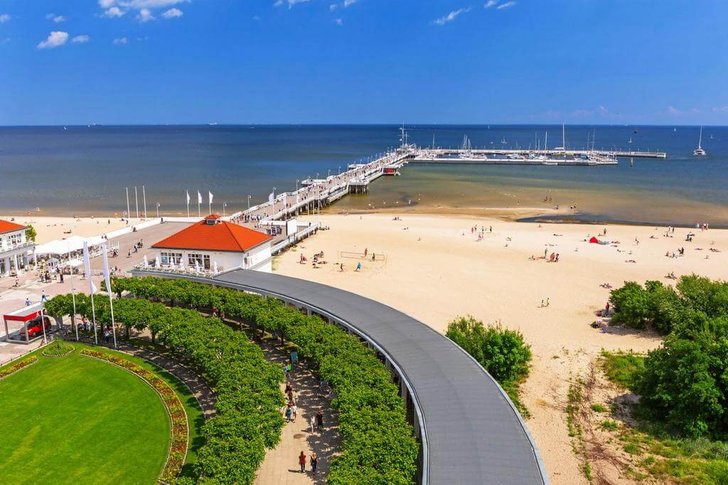Poland is a country with a rich history. For lovers of antiquity there is something to see. To view architectural monuments, it is enough to visit the historical centers of the ancient cities of the country. For example, Gdansk, Krakow or Torun, which have preserved historical buildings with a thousand-year history.
Many excursion routes include castles - Marienburg, Wawel and Wilanow Palace. Museums will tell about the sad pages of the history of Poland: Auschwitz-Birkenau, the European Solidarity Center, the Museum of the Second World War. Separately, it is worth mentioning the religious buildings. These are large architectural complexes - Kalwaria Zebrzydowska. And individual architectural masterpieces - the Monastery of Jasna Hora or the Vang Church.
What to see and where to go in Poland?
The most interesting and beautiful places to visit, photos and a brief description.
- Marienburg Castle
- Warsaw Old Town
- Salt mine in Wieliczka
- Wawel (Krakow)
- Kazimierz (Krakow)
- Market Square and Cloth Hall (Krakow)
- Mary's Church (Krakow)
- Historic center of Gdansk
- Church of St. Mary (Gdansk)
- Old town of Zamość
- Old Torun
- Town Hall and Market Square in Wroclaw
- Wroclaw gnomes
- Centenary Hall and Wroclaw Fountain
- Palace of Culture and Science (Warsaw)
- Manufaktura (Lodz)
- Wilanów Palace
- Museum of the Warsaw Uprising
- Auschwitz-Birkenau Museum (Oswiecim)
- Oskar Schindler Factory (Krakow)
- European Solidarity Center (Gdansk)
- Museum of the Second World War (Gdansk)
- Wooden churches in the south of Lesser Poland
- Churches of the world
- Kalwaria Zebrzydowska
- Wang church in Karpacz
- Monastery Jasna Hora (Częstochowa)
- Książ Castle
- Zakopane
- Masurian lakes
- Tatra National Park
- Belovezhskaya Pushcha
- Wroclaw Zoo
- Lazienki Park (Warsaw)
- Sopot beach and pier
Marienburg Castle
In 1274 the castle was founded by the Teutonic Knights. Repeatedly rebuilt and expanded in the XIV century. From the 15th to the 18th century it was the residence of the Polish kings. The invasion of the Swedes, and then the Second World War, left only ruins from the castle. To date, the reconstruction initiated by the Polish authorities has been fully completed. Tourists can admire the castle as a magnificent example of Gothic brick art.
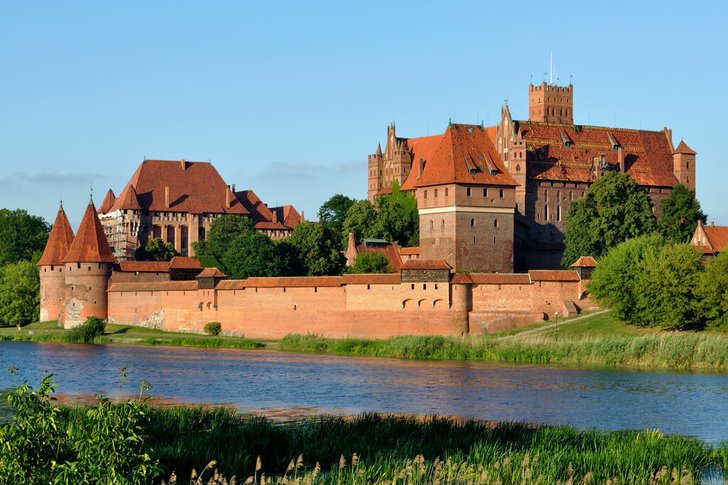
Warsaw Old Town
Founded in the 12th century, the historic district of Warsaw. It is a popular place among tourists. After the Second World War, most of the buildings of the Old Town were rebuilt according to photographs and surviving drawings, for which they were included in the UNESCO list. Old preserved buildings are the Cathedral of St. John the Baptist and the Warsaw Barbican. The center of the old city is the Market Square. Now it houses many cafes, shops and souvenir shops.
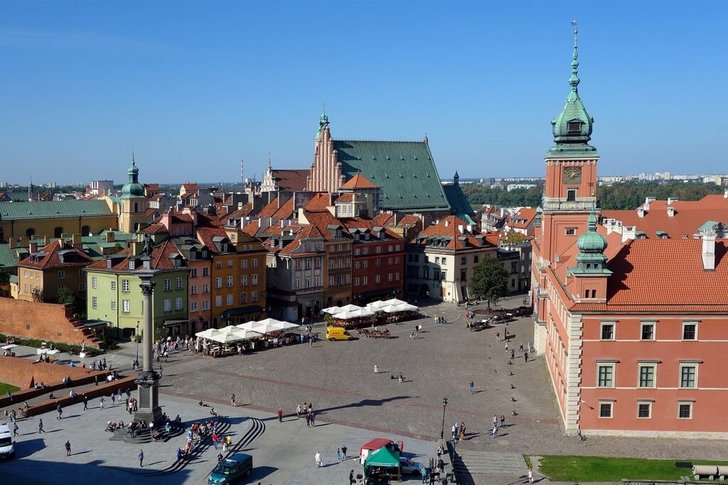
Salt mine in Wieliczka
The development of the rock salt deposit in Wieliczka has been going on for seven centuries. During this time, 7 levels of underground corridors with a total length of 200 km appeared in it. The depth of the deposit is almost 200 meters. UNESCO has taken this unique industrial facility under its protection. Excursion routes include visiting the chamber of Casemir the Great, the underground chapel of St. Anthony and the Danilovich mine shaft of the 17th century.
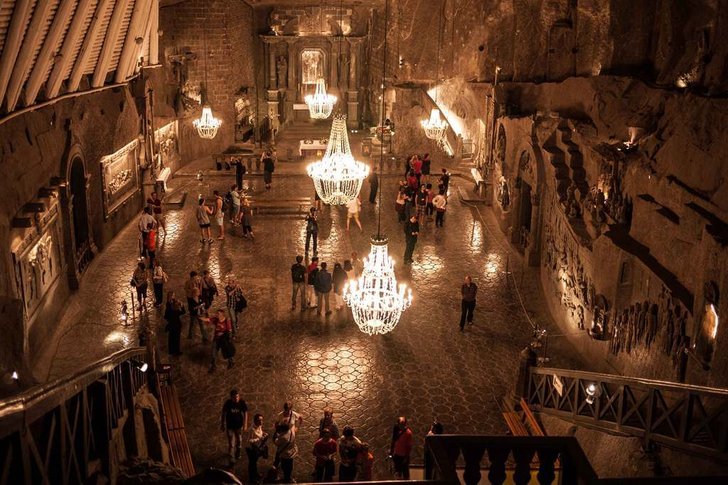
Wawel (Krakow)
An architectural complex located on a hill in Krakow. Includes the Cathedral of St. Stanislav and Wenceslas and the Royal Castle. For Poland, these buildings are the same symbol as the Kremlin for Russia. A massive Gothic castle, a cathedral with 20-meter high towers, several small chapels and churches - they create a unique architectural ensemble, which is visited daily by hundreds of tourists.

Kazimierz (Krakow)
A monument to the history of Poland, part of the Old Town of Krakow. Historically, it is the place of residence of Jews. The famous film Schindler's List about the Holocaust was filmed here. There are 7 synagogues in the Jewish quarter, which managed to survive during the Second World War, now they have been restored. Travelers note the comfort and special atmosphere in Kazimierz, different from the Old Town.
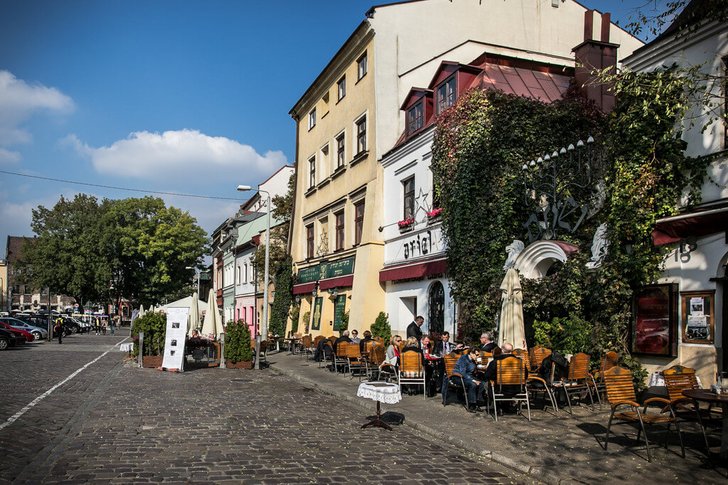
Market Square and Cloth Hall (Krakow)
The central trading place of Krakow is located on the Market Square, founded in 1257. Palaces, churches and ancient buildings are located on a square 200 meters long. In the center of the square there are Cloth Rows - an architectural monument. Wooden benches are located under neo-Gothic arches, the walls are decorated with decorative stucco. Next to the Cloth Rows is the Church of St. Wojciech, which is almost 1000 years old.
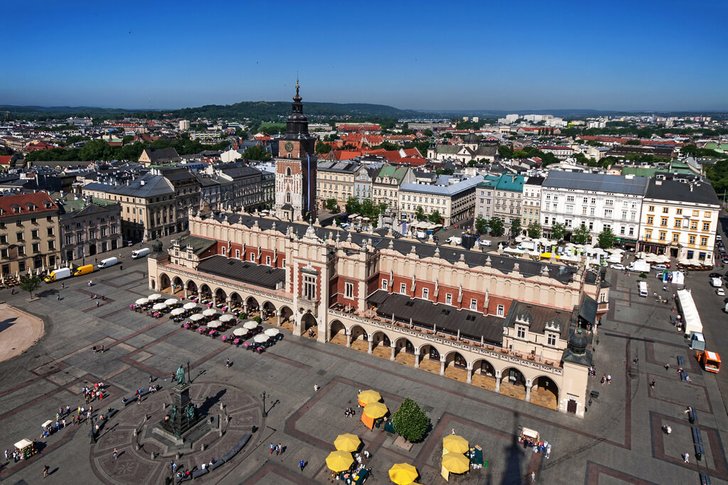
Mary's Church (Krakow)
The construction of the cathedral ended in 1397. The basilica has three naves built in the Gothic style. One tower of the church is crowned with a pointed spire, the second - with a helmet. The tallest tower is 82 meters. The interior of the church is decorated with stained-glass windows, as well as works of sculpture and painting. The main decoration is the altar, 13 meters high. It is carved from basswood and combines Renaissance and Gothic elements.
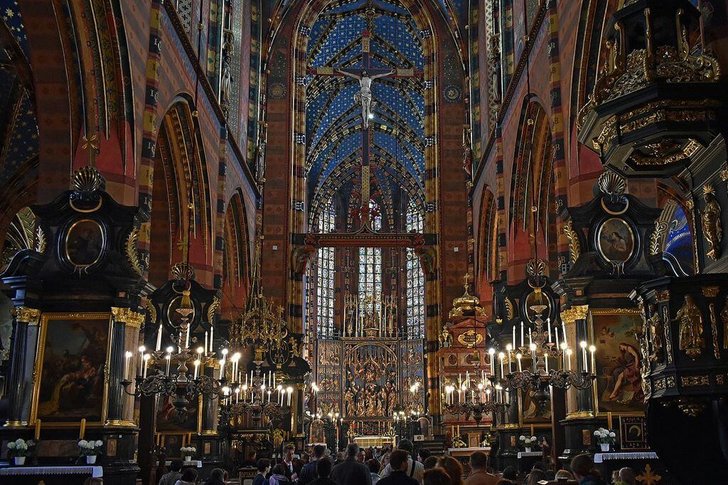
Historic center of Gdansk
One of the oldest cities in Poland - it was founded in the X century. The city is an architectural complex of buildings built in the XIII-XVIII centuries. There are many museums in Gdansk - archaeological, painting, maritime. A large number of historical monuments are concentrated in the Old Town. At the entrance to the historical center are the Golden Gate, behind which are the most beautiful buildings of the city.
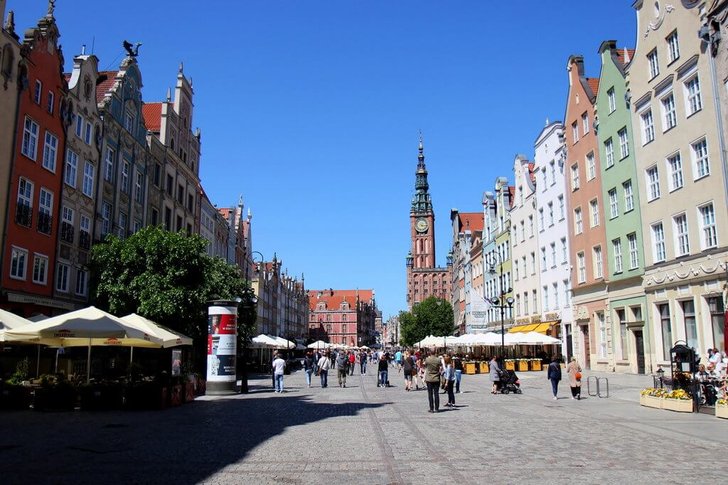
Church of St. Mary (Gdansk)
The construction of the church, 105 meters high, lasted from the middle of the 14th century to the beginning of the 16th century. The bell tower has an observation deck with views of the historic center of the city. Inside there are magnificent works of art from the Middle Ages - a stone Pieta, an astronomical clock, an altar erected at the beginning of the 16th century. Local residents consider it a miracle that the church was practically not damaged in a fire in 1945.
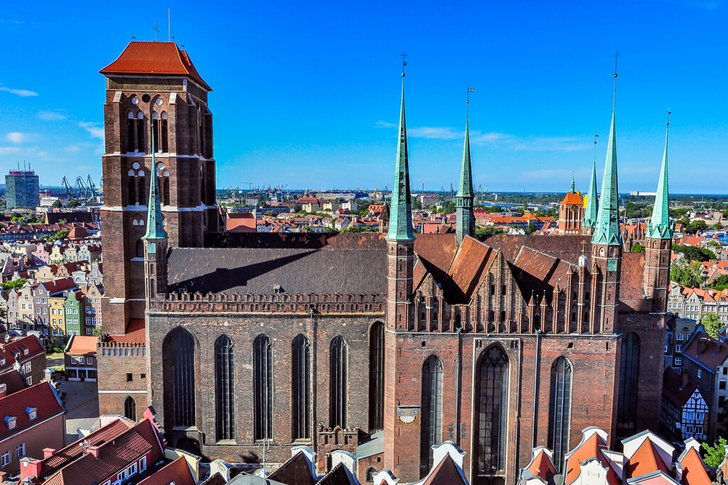
Old town of Zamość
In the 16th century, Zamość was built by Italian masters as a fortified city, but in the 19th century, picturesque gardens were built instead of fortress walls. The historic center of the city with buildings in the Renaissance style is included in the list of UNESCO sites. Beautiful buildings are skillfully built into a single architectural urban ensemble. Among the architectural monuments are the building of the city hall, the Zamoyski Palace, the Cathedral.
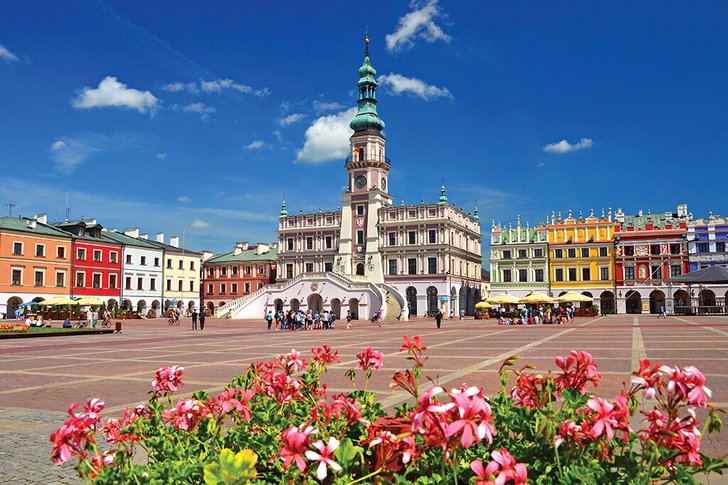
Old Torun
The oldest part of the city of Torun is included in the UNESCO cultural heritage list. The construction of the city began in the 13th century. Partially preserved to date, the city walls separating the historical part of the city from later buildings. The castle of the Teutonic Order, the Church of St. Mary and the House of Copernicus are considered masterpieces of brick Gothic. The center of the old district is the Old Market with the Torun Town Hall.
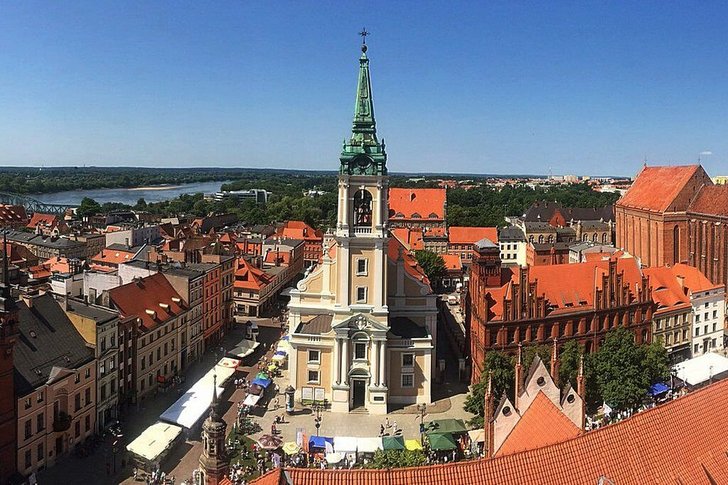
Town Hall and Market Square in Wroclaw
Founded in the 12th century, the Market Square is the main attraction of Wroclaw. In different eras, it was built up with buildings of different architectural styles. In the center of the square there is a whole block of mansions with gothic and art nouveau elements in their design. The most interesting object is the City Hall. It was built almost 300 years - in the XIII to XVI century. Now the town hall is a museum object.
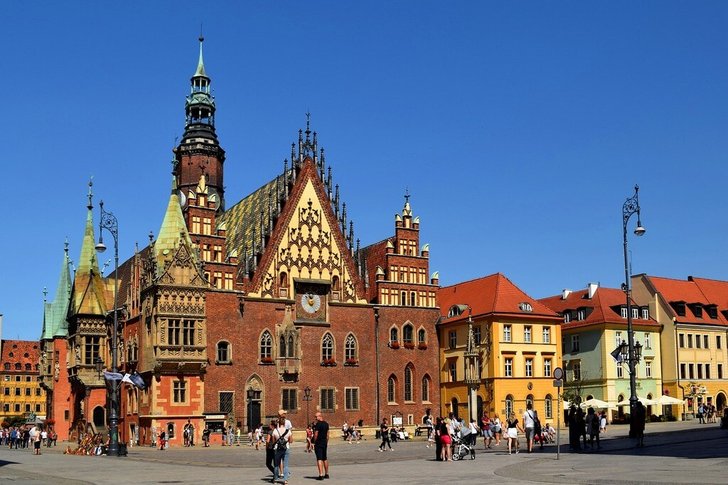
Wroclaw gnomes
Unusual bronze figurines of gnomes are the symbol of Wroclaw. It all started with the installation of a monument in the form of a gnome by the city authorities in 2001, and since 2006, many private organizations began to install their own gnomes. Currently, about 400 statuettes are located in different parts of the city. Each gnome has its own character and history. Among the guests of the city, a quest to find all the gnomes of Wroclaw is popular.
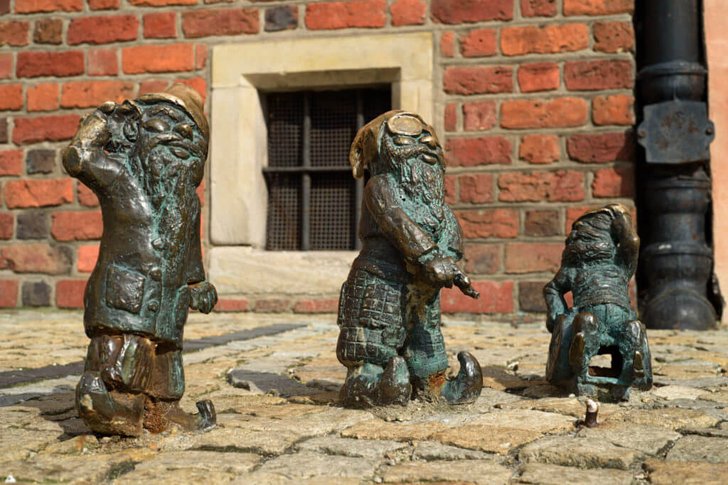
Centenary Hall and Wroclaw Fountain
The grandiose building, built in 1913, is used for concerts and sporting events. One of the world's first reinforced concrete structures, it is a magnificent example of early modernism. Included in the list of objects protected by UNESCO. Near the hall there is a multimedia musical fountain. Its illumination consists of 800 points of illumination. In winter, a skating rink operates on the site of the fountain.
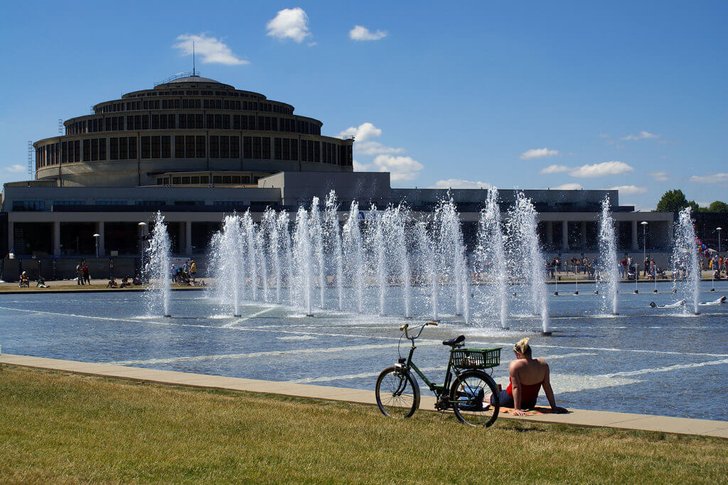
Palace of Culture and Science (Warsaw)
Tallest building in the country. The height of the skyscraper of 42 floors is 240 meters. The construction was carried out with the money of the Soviet Union by Soviet builders. They took the Moscow "Stalin skyscrapers" as a model. As a result, the palace building combines the styles of the Stalinist neo-Empire and Polish historicism. The premises of the building are occupied by museums and exhibitions, as well as offices of private organizations, shops, a swimming pool, theaters, conference rooms.
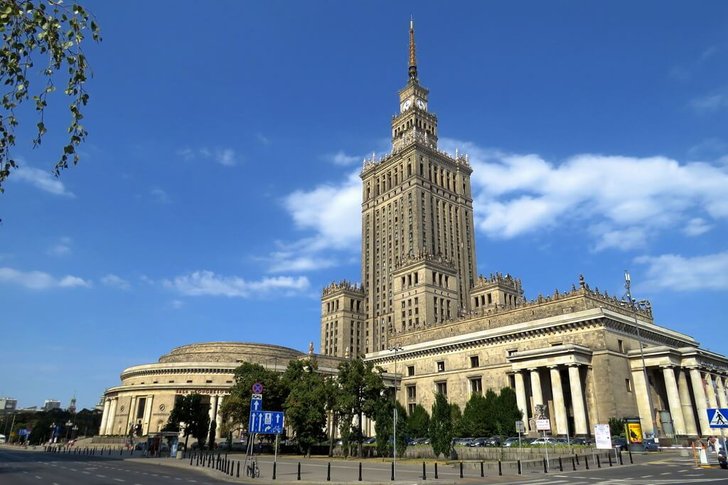
Manufaktura (Lodz)
A large shopping and entertainment center in the city of Lodz. It was built in a modernized building of a large manufacturing factory of the 19th century. The area of the mall is 26 hectares. It houses more than 300 stores of major global and national brands. The complex also includes a hotel, a skate park, a bowling club, a rollerdrome, a climbing wall and a cinema with 15 halls. A fountain 300 meters long, installed at the mall, is noteworthy.
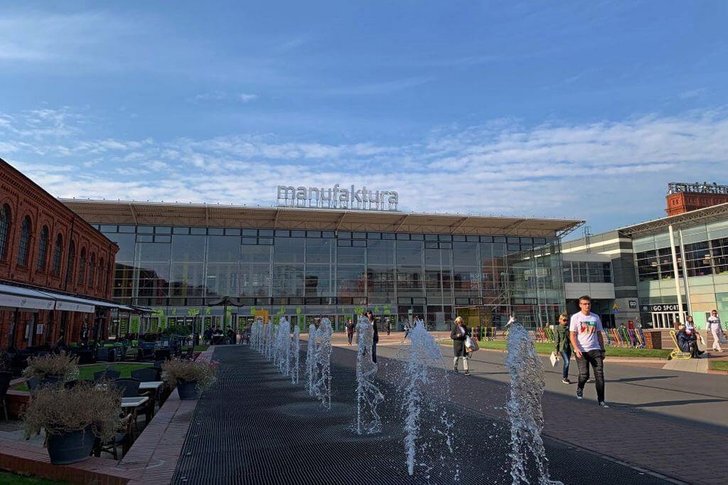
Wilanów Palace
The palace was built at the beginning of the 17th century for King Jan Sobieski as a country residence. An architectural monument in the Polish Baroque style. It combines the principles of European art and the traditions of Polish building architecture. The facade is decorated with sculptures and intricate decor. In 1805, a museum was opened in the palace, which still exists today. Around the palace there is a chic and picturesque Wilanów park.
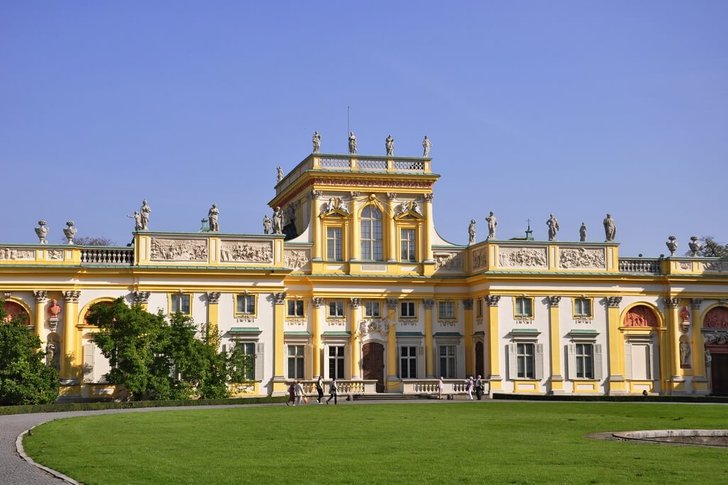
Museum of the Warsaw Uprising
The museum occupies 4 floors of the former tram depot building. Its exhibits are dedicated to the Warsaw Uprising of 1944. In total, 750 exhibits and about 1000 photographs are placed at the exhibitions of the museum. The names of 10,000 dead insurgents are engraved on the 156-metre-long Wall of Remembrance next to the museum. The cinema hall shows the film "City of Ruins", which shows the horror of the destruction and devastation of Warsaw during the uprising.
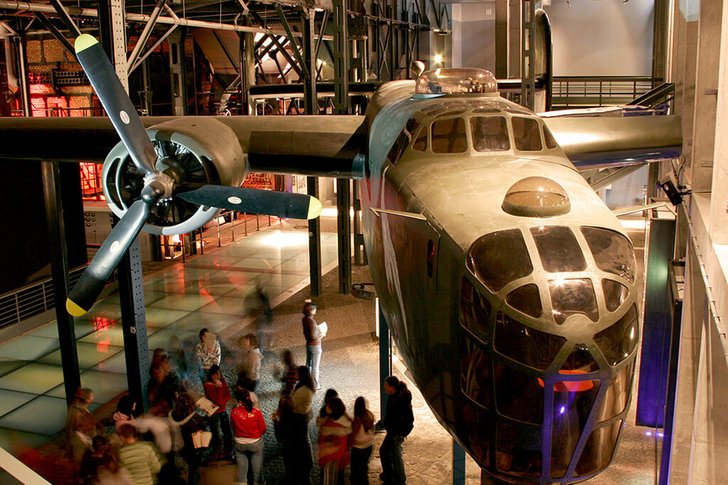
Auschwitz-Birkenau Museum (Oswiecim)
There were three major Nazi concentration camps in Auschwitz. During the Second World War, more than a million people died in them, mostly Jews by origin. In 1947, the Auschwitz-Birkenau Museum was opened here, dedicated to the terrible events of the war. More than a million people visit it every year. On the territory of the museum in 1967, a monument was opened in honor of the victims of Nazism.
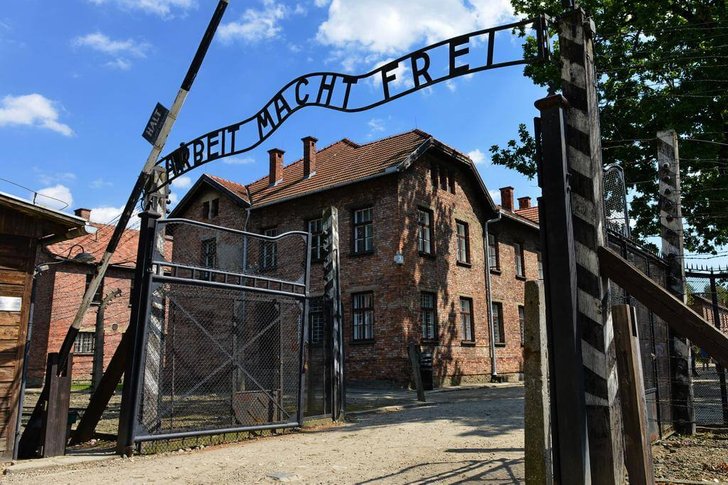
Oskar Schindler Factory (Krakow)
The activity of this factory is shown in the movie Schindler's List. The founder of the factory redeemed prisoners from concentration camps to work in production, so he helped thousands of people avoid death. The exposition "Krakow during the occupation 1939-1948" attracts a large number of visitors. It was opened in 2010 and tells about the history of the factory, the fate of the Jews of Krakow and the life of the population during the occupation.
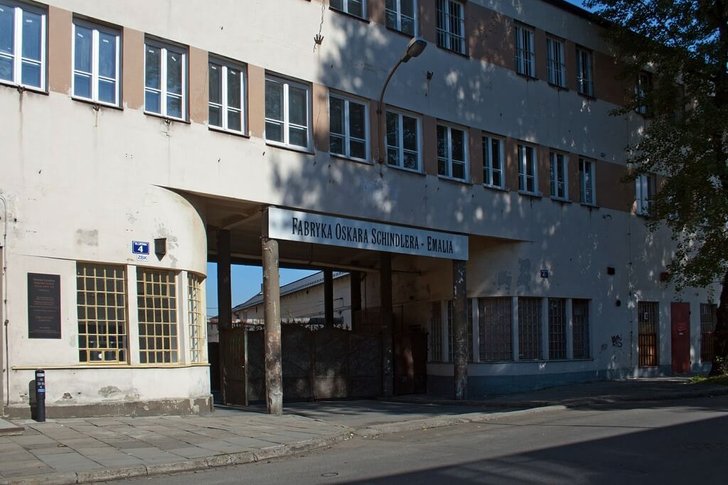
European Solidarity Center (Gdansk)
Multimedia museum and library complex in Gdansk. It was opened in 2014 and is dedicated to the creation and work of the Solidarity opposition movement. The building is made in the form of a ship, its area is 25,000 m². 6 halls of the museum tell about the emergence of the popular movement, the history of Poland, the change of the political regime and the fall of communism. Visitors can use an audio guide, including in Russian.
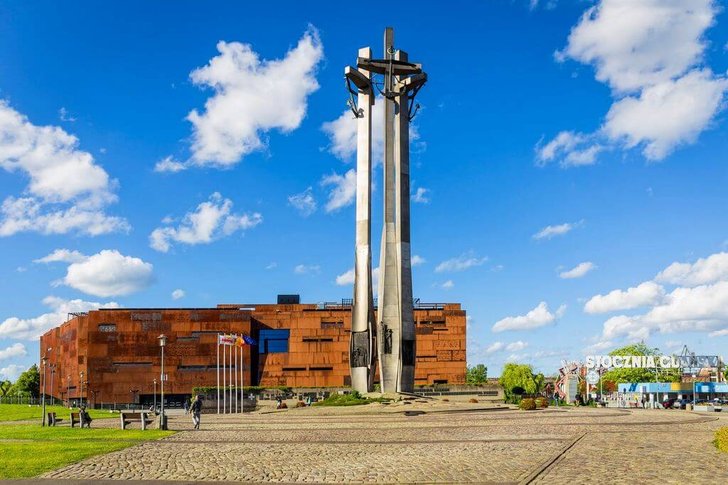
Museum of the Second World War (Gdansk)
Located on a peninsula in the city of Gdansk. The museum opened in 2017. The building is an example of Polish modern architecture. The main exposition is located in the underground part. Its funds comprise 50,000 exhibits. The concept of the museum is interesting - to show the horrors of war not only from the point of view of politics, but through the eyes of an ordinary person. The installations of the museum are shocking and make a strong impression.
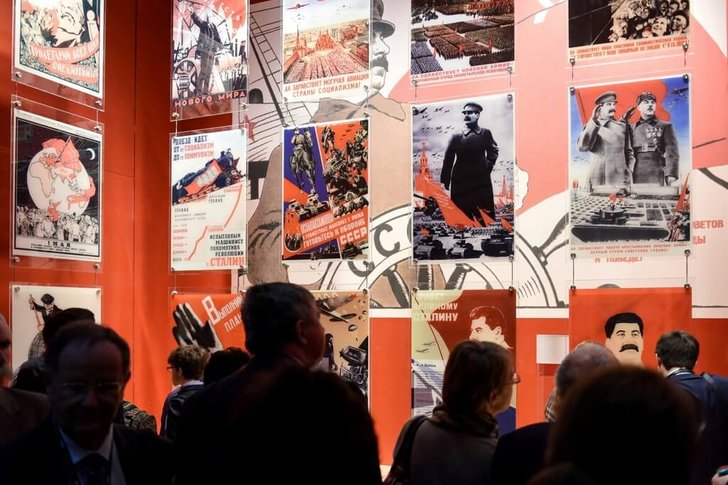
Wooden churches in the south of Lesser Poland
In the south of the country there is a complex of valuable architectural wooden churches. They are created in different styles - baroque, renaissance, gothic. The earliest objects were built in the XIV century. One of the first buildings is considered to be a church in Khachuv dating back to 1388. Part of the complex is under the protection of UNESCO. A special tourist route has been developed to visit the southern Lesser Poland churches; it is popular among travelers.
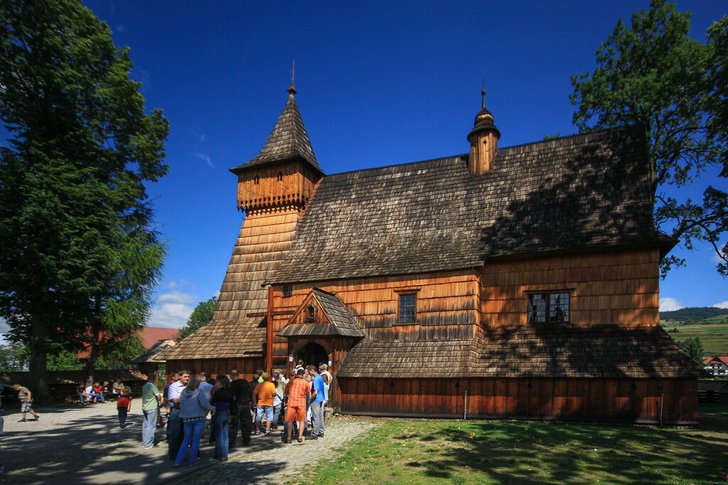
Churches of the world
Large religious wooden buildings of the 17th century, listed by UNESCO. Of the three churches built, two have survived to date. They are located in the cities of Svidnica and Jawor. The church in Swidnica can accommodate 6,000 parishioners. Its ceilings are decorated with paintings depicting scenes from the bible. The church in Yavor with an area of 1090 m² can accommodate 7500 parishioners. The architectural solutions of the facades of churches are extremely original.
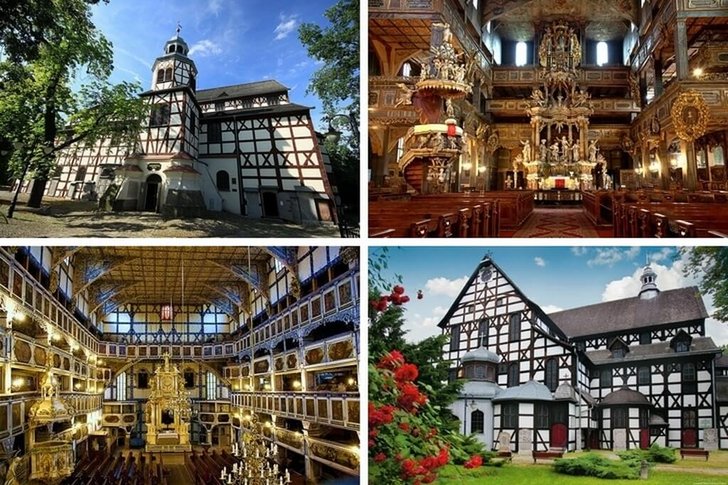
Kalwaria Zebrzydowska
Religious architectural and park complex in the center of Poland on the slopes of the mountains. During the construction of the park, the natural features of the area were taken into account. The buildings of the park symbolize the procession and the Passion of Christ. They have a complex architecture. The building of the chapel of the Cathedral of Our Lady is made in the form of a heart, the house of Pontius Pilate is in the form of a Greek cross, and the house of Kaifa is in the form of a simple ellipse.
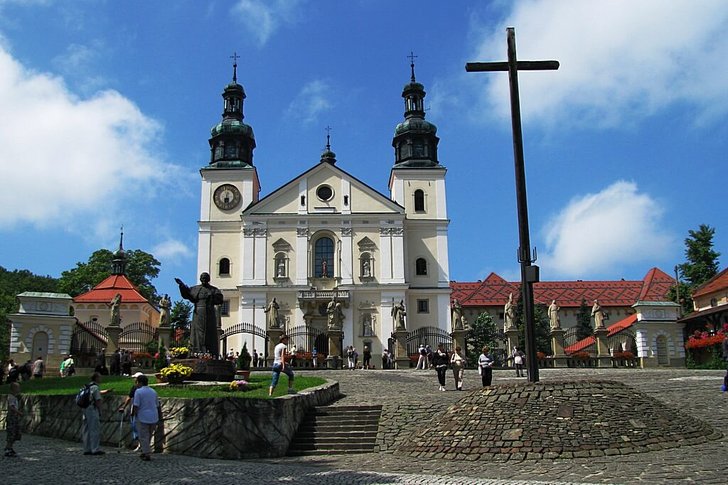
Wang church in Karpacz
It is located at the foot of the Snezhka mountain in a beautiful dense forest. The church was built in the style of traditional Scandinavian architecture. The building was built in Norway in the 12th century, and in the 19th century it was moved to Karpacz by order of King Wilhelm IV of Prussia. The church was built from Norwegian pine without the use of nails, but at the same time it is an incredibly durable building. The facades of the outer walls are decorated with ornaments.
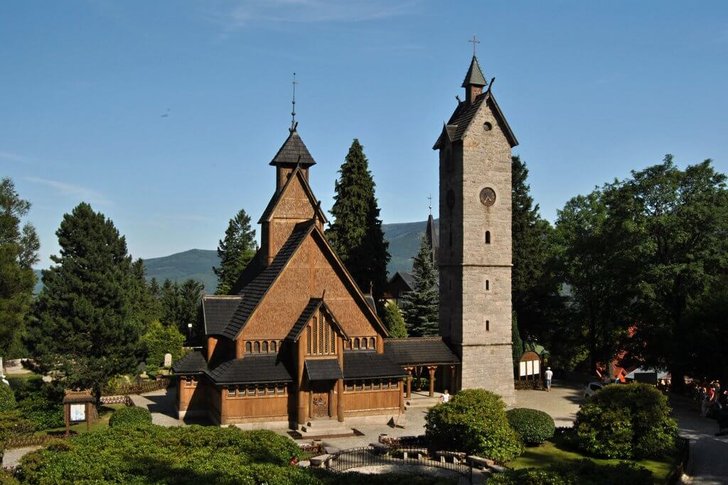
Monastery Jasna Hora (Częstochowa)
Catholic monastery in Częstochowa. Belongs to the monks of the Pauline order. They erected a monastery on a hill 293 meters high in the 14th century. The baroque bell tower of the monastery is 106 meters high. Powerful arrow-shaped bastions are located at the corners of the quadrangular monastery. The main attraction is the Czestochowa Icon of the Mother of God, which is considered miraculous among believers.

Książ Castle
It is located near the city of Walbrzych and is the third largest in Poland. The castle is part of the Piast Castles tourist route. Founded in the 13th century. It received its modern look under the ownership of the Hochberg dynasty. In wartime, the Nazis removed all valuables from the castle. But even now there is something to see. In the beautiful garden - an exhibition of flowers and shrubs, in the halls of the castle - an exhibition of porcelain and ceramics.
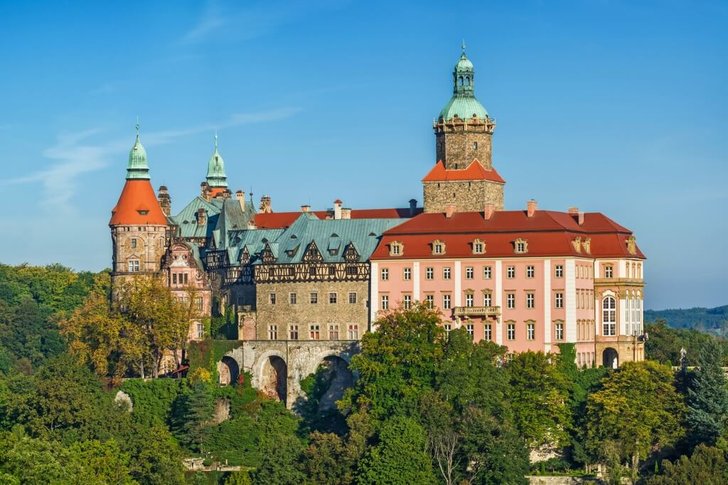
Zakopane
There are several ski resorts here. The city is called the "winter capital of the country" because of the thousands of tourists who visit Zakopane at this time of the year. It is located at the foot of the Tatra Mountains. Clean air, beautiful views of snow-capped peaks, dense coniferous forest and developed infrastructure make it ideal for rest. Such entertainments as - tens of kilometers of ski runs, skating rinks, thermal pools are presented.
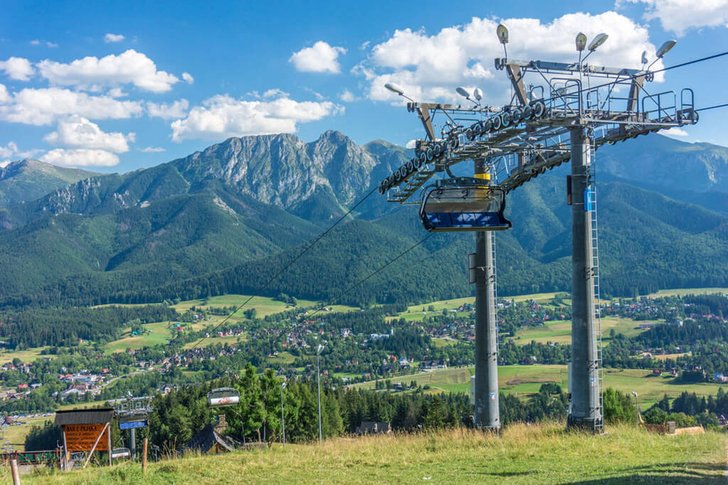
Masurian lakes
A group of lakes with a total area of 310 km². It consists of 2000 reservoirs of different sizes of glacial origin. On the shores of the lakes there are picturesque forest reserves. This place is popular among travelers not only because of its natural beauty. The infrastructure for tourists is well developed here. It is possible to order a boat trip, a tour of historical sites, or just take a walk along the paths on the banks.
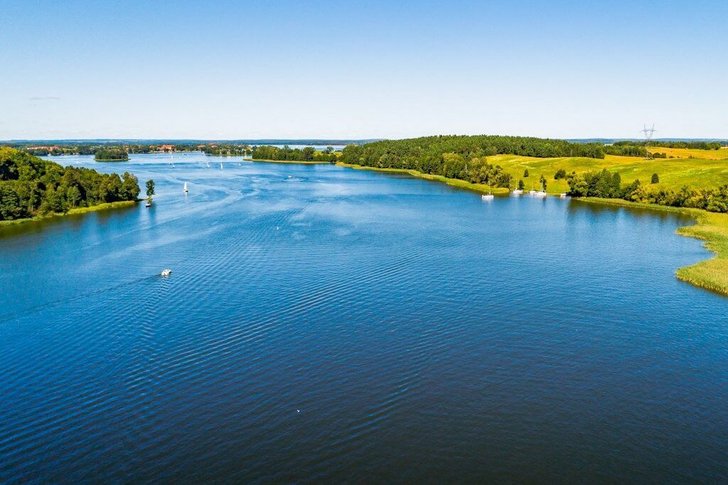
Tatra National Park
A large park in the southern part of Poland. It is located in the landscapes of the Tart Mountains belonging to the Carpathians. It occupies an area of 22,000 hectares. 70% of the park area is occupied by forests, the rest is rocks with 750 caves, lakes and waterfalls. The forest in the park is predominantly coniferous. The highest mountain Rysi is popular with climbers. Like the park and hikers. For them, trails of varying difficulty with a total length of 270 km have been laid.
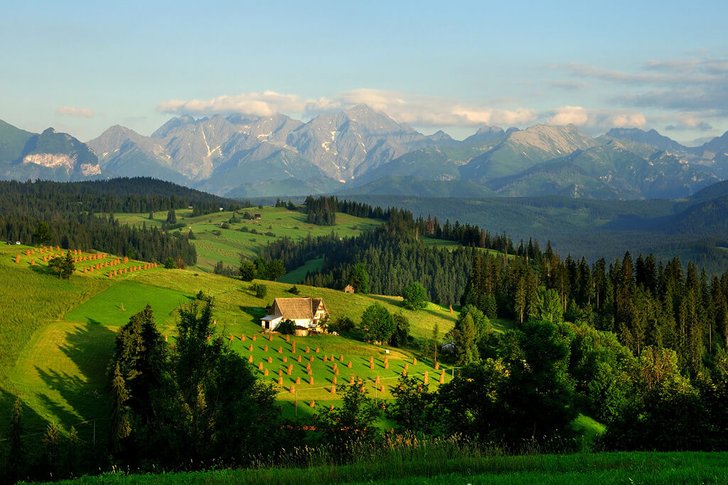
Belovezhskaya Pushcha
Large relict lowland forest. Included in the UNESCO heritage list. It is located on the territory of two neighboring states - Poland and Belarus. Many animals live in the ancient forest, but the bison is considered the most valuable. Tourism is developed in the reserve on the Polish side. The main tourist center is the village of Belovezha, it is here that tourists gather before excursion routes.
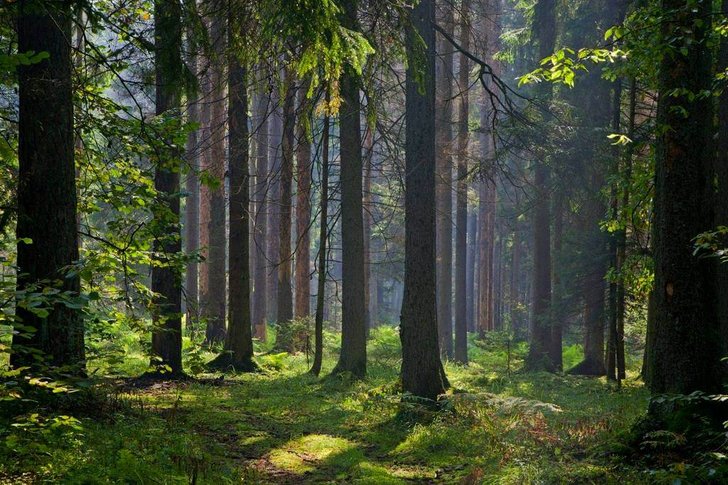
Wroclaw Zoo
The 33-hectare zoo was founded in 1865. At the same time, buildings of architectural value were built in it - the House of Monkeys or the House of Butterflies. The zoo is home to over 10,000 animals. A 1.2-hectare enclosure has been built for brown bears. The pride of the zoo is the Africanarium - a large aquarium with different ecosystems of the continent. Interesting sections are the terrarium and the Madagascar zone.
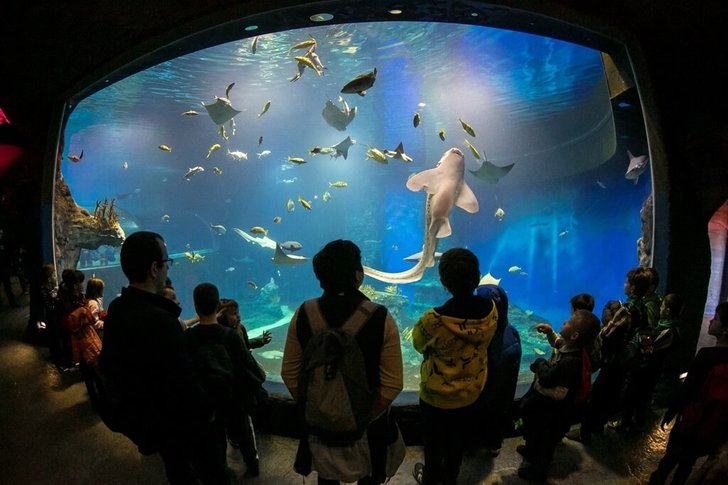
Lazienki Park (Warsaw)
An ancient palace and park complex with monuments of culture and history. Founded in the 17th century by decree of Hetman Lubomirsky. It houses the Palace on the Water - a secluded pavilion with a Chinese-style bath. Another attraction of the park is the Roman Theatre. This is an amphitheater built near the water, decorated with statues of ancient poets. Undoubtedly, it is worth seeing the Old and New greenhouses, the Myshlevitsky Palace, the White House.
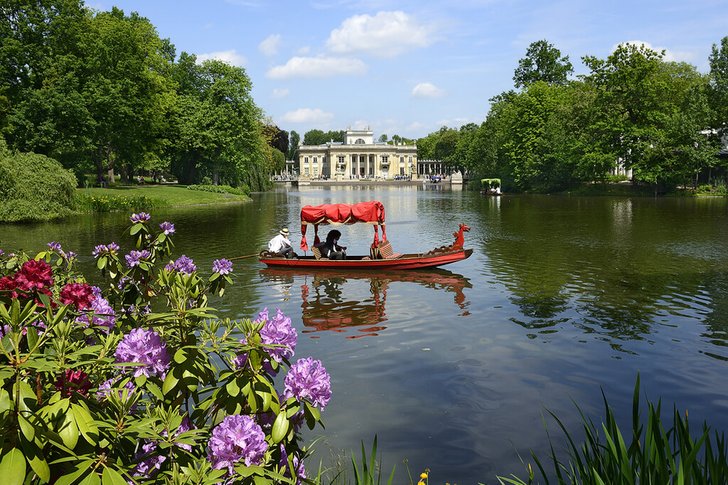
Sopot beach and pier
The seaside resort of Sopot is famous for its sandy beach. Long, wide and secure. The necessary infrastructure is equipped - changing cabins, sports grounds, cafes and bars. The length of the beach line is 4 km. There is also a historical landmark - a wooden pier 55 meters long. Concerts are often held on its land part, the “sea” part is ideal for walking.
